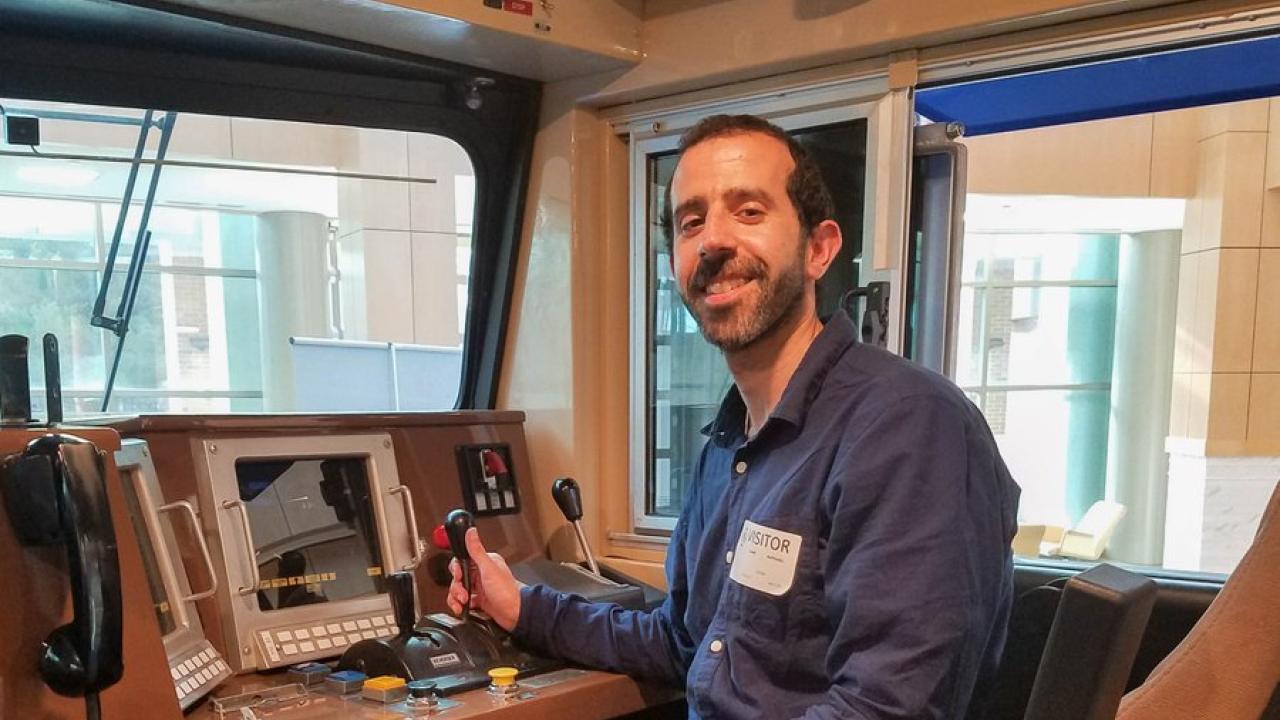
UC Davis PhD Graduate Raphael Isaac Energizes the Transportation Sector
Meet Doctor Raphael Isaac, Spring 2020 graduate of UC Davis’ Transportation Technology and Policy PhD program. This same spring Raphael joined Energetics, an energy technology consulting firm, as a Senior Transportation Data Analyst. Originally hailing from the east coast, Dr. Isaac was inspired to enter the transportation field by a variety of educational, professional, and personal experiences.
“Growing up in New Jersey, I was aware of the fact that cars seemed to be necessary to get around. As I got older, this seemed somewhat nonsensical to me,” he shared. “Also, I was fascinated by weather and climate as a kid, and this brought in an interest in the climate impacts of energy consuming industries such as transportation.”
Isaac’s diverse array of experiences led him to where he is today. He studied psychology with a focus on neuroscience as an undergraduate and after working for a few years decided to go back to school to pursue a Master of Public Policy degree from Rutgers University. From there, he went on to work in the public sector for New Jersey Transit, as well as at a non-profit focused on solar energy, before pursuing a PhD at UC Davis.
Isaac found the UC Davis faculty’s diverse perspectives combined with their expertise in their respective fields contributed to his growth as a researcher. During his time as a PhD student, he was a recipient of the National Center for Sustainable Transportation (NCST) Dissertation Award in 2017, and presented his research in the United Kingdom, Italy, Austria, China, and across the US.
His research at UC Davis focused on alternative fuel technologies, particularly within the rail sector. He researched the environmental impacts of alternatives to the diesel-electric powertrain, specifically natural gas, biodiesel, and hydrogen, and hybridizing these types of powertrains with batteries. He has always been cognizant of the social and public health impacts of pursuing more sustainable and active transportation modes, which are too often overlooked from an equity standpoint.
Over the years, Isaac has become particularly interested in the environmental impacts of transportation, and how using alternative powertrains can lead to reduced energy consumption. He added, “As I got more fascinated by the climate aspects of energy consumption in the transportation sector, I realized that minimizing energy and maximizing public health often led to the same conclusions.” He is continually cognizant of the need to reduce our energy consumption and emissions, and part of his role as Senior Transportation Data Analyst, in line with his values, is to work to increase the knowledge that lower energy use is in both society and the environment’s best interests.
In his consulting role, where he is actively supporting the US Department of Energy (USDOE) as a governmental client, Dr. Isaac’s major current project is Project Management Support for the Analysis Division, Vehicle Technologies Office, under the USDOE. You can learn more about this project here.
This article was originally featured in the University of Southern California and California State University, Long Beach's METRANS Transportation Center's newsletter and authored by Dan Lamere, a second-year Master of Urban Planning student at the USC Price School of Public Policy. He works as a staff writer and project coordinator for the METRANS student team.
